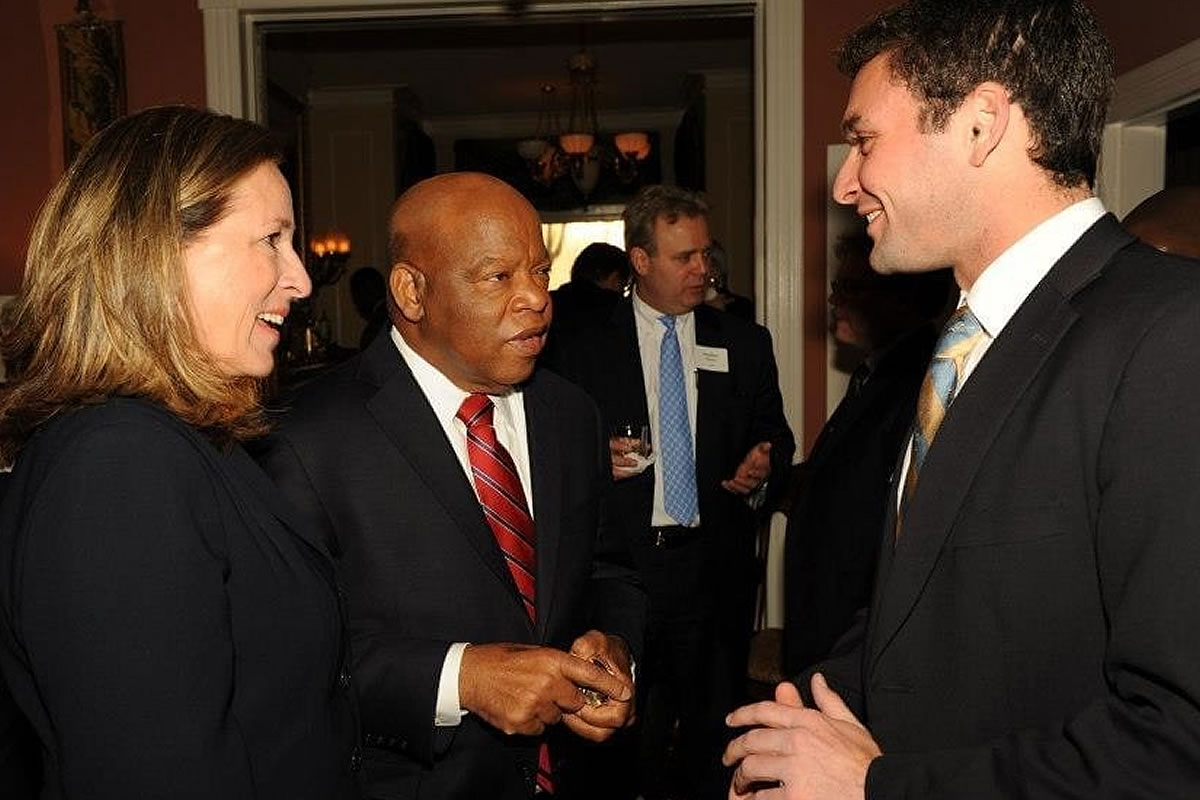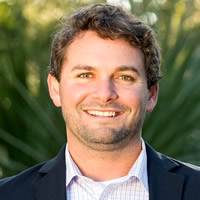By Sam Skardon, republished with permission | Not many people can say this, but in my first job, I proudly kept a copy of my boss’ mugshot on my desk. I’d look at it and wonder if the 21-year-old John Lewis in the picture, who had just been arrested on the Freedom Rides, thought it was possible that someday a framed version of it would be sitting on the desk of a 21-year-old aide in his office at the U.S. Capitol. He had a slight smile on his face in the picture, so maybe he had a hunch. I asked him about it once and he just flashed the same smirk from the mugshot back at me.
I wish I had counted the number of times I heard Mr. Lewis tell his life story. His voice would roar to life with that deep Alabama accent. He was a preacher and every audience quickly became his congregation. He had been doing it his whole life, as the crowd would quickly learn.
Growing up on a farm in Alabama, his job was to raise chickens. They were his first parishioners. He wanted to be a minister, and his way of training himself was to gather the chickens in the yard and recite a sermon every Sunday. At this point in the story his voice would lighten, he’d add, like a proud dad approaching the punchline of a bad joke, that he could get those chickens to bow their heads, sometimes they’d shake their heads, but he could never quite get them to say, “Amen.”
The chicken story warmed up every audience for the serious talk they’d come to hear, a lesson from one of America’s great civil rights leaders. He’d talk about listening to the radio in high school and being inspired by Rosa Parks in nearby Montgomery, and the local minister who’d organized a bus boycott after her arrest, Martin Luther King Jr. Occasionally, he’d mention the outrage he felt that same year when he learned about the brutal lynching of Emmett Till, who was his age.
It was those events that inspired the future congressman to write King, asking for help getting into his local college, Troy State. At the time, Troy didn’t accept applications from black students. King, likely realizing he had a precocious potential ally on his hands, wrote back saying he could not get him into Troy that year, but included a bus ticket so they could meet in Montgomery and discuss ways for Mr. Lewis to become involved in the movement.
He would go on to be a leader of the early Nashville sit-in movement, a Freedom Rider, chairman of the Student Non-Violent Coordinating Committee (SNCC). At 23 he was the youngest speaker at the 1963 March on Washington, and led what became known as the ‘Bloody Sunday’ march for voting rights in Selma.
40 years later, as a member of Congress, he was awarded an honorary degree by Troy. Writing that letter to King succeeded beyond his wildest expectations, he’d say with a proud smile; it got him the degree without ever having to sit through a class there.
It was those stories of progress that he witnessed – like the mugshot on my desk, the degree from Troy, or the cocktail napkin with a note from President Obama at his inauguration saying, “Because of you, John” – that will forever inspire me. They show how much change can happen in our lives, even against the most impossible odds, and how we can each play a role in it.
Having worked with Mr. Lewis will forever give me a sense of hope, determination and solemn pride. God rest his soul and help us carry on his legacy. As I heard him say countless times, at the end of each talk he gave, “We must never become bitter, never become hostile. Never give up and never give in. We must all keep the faith, and we must all keep our eyes on the prize.”
Sam Skardon served as an aide to Congressman John Lewis from 2010 to 2013. He currently lives on James Island with his wife Leslie and is the Democratic nominee for S.C. Senate District 41. This column first appeared in the Charleston City Paper on Saturday, the day after Lewis died at age 80.





 We Can Do Better, South Carolina!
We Can Do Better, South Carolina!
























